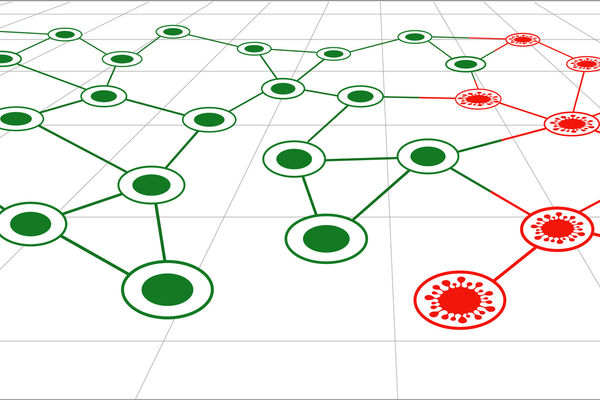On Thursday Sept. 3, Furman announced it was “adjusting its testing protocols.” The subtle language hid a more dramatic policy-change. All students were required to be tested for COVID-19 the following day, Friday Sept. 4, and sophomores and juniors will need to “provide a negative test result before arriving on campus” the weekend of Sept. 11.
The Paladin met Friday with Furman’s Associate Provost for Integrative Science, Dr. John Wheeler, who also serves on the Fall Planning Steering Committee to discuss the decision. Wheeler claimed that the Administration’s announcement of campus-wide tests does not represent a break from their previous policy, but rather a necessary and intentional adjustment of that policy.
“The policy hasn’t changed,” he insisted, “If there is no evidence of disease, then the concept of testing everyone is not what the CDC recommends. What has changed now is that we do have evidence of the disease in the sense of a formal outbreak from an off-campus event that approaches a 60% positive COVID-19 test rate.” In sum, Wheeler agreed that the administration would likely not be doing campus-wide testing if it weren't for the parties at the former Kappa Alpha fraternity house and the subsequent outbreak.
Despite the mandatory campus-wide tests, however, Wheeler suggested that the administration has no reason to suspect that there is high caseload on campus. He cited that, besides cases linked to parties at the former Kappa Alpha house, there “have been less than 5 cases on campus” that have been tracked and followed by the health center since August 12. He also noted that asymptomatic testing for athletes since their return in July has also revealed very low evidence of infection.
Wheeler also reaffirmed the administration’s commitment to keeping students on campus, saying that he does not foresee a lockdown situation following testing and is still “expecting to see sophomores and juniors back this week.” In short, Wheeler explained, “Everything that we have done since last spring is about keeping students here for the entire term.”
Looking back on the decisions the University had made thus far, Wheeler has no regrets. In particular, he explained that the staggered return approach “has allowed us to get our feet on the ground.” If the entire student body had been on campus for the first outbreak, Wheeler explained, “the situation could have been much worse.”
According to Wheeler, one drawback of the staggered return policy that the University did not anticipate has been the number of second- and third-year students living in Greenville while they await their return to campus. Wheeler indicated, for example, that among the students in attendance at the off-campus house parties, the ratio of students living off campus to those living on campus was highly significant (there were a lot of students from off-campus). “One concern,” he emphasized, “is with those students who may be coming from off-campus who have not all been quarantining or following the Paladin Promise.”
According to Wheeler, the success or failure of Furman’s policy response is contingent on students’ cooperation. In particular, he took issue with “cases where students are self-medicating and not going through the student health center,” saying “for us to track and trace, we have to know where the disease is.”
The University hopes to update the COVID-19 dashboard by Monday afternoon (Sept. 7).
